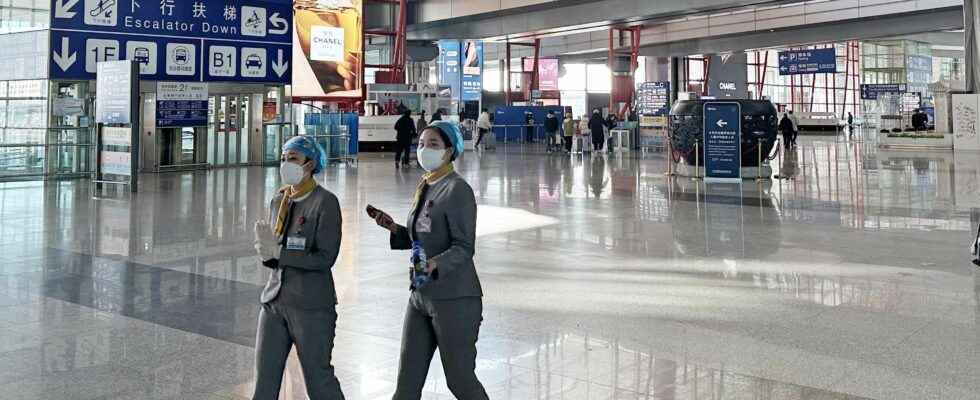As China reopens to the world, will the Old Continent barricade itself again? The European Commission called a meeting on Thursday 29 December to “discuss […] possible measures for a coordinated approach” by EU states to the explosion of Covid cases in China. Since the lifting of restrictions on December 7, at least 250 million people have been infected in the country. From January 8, the Chinese will be able to start traveling massively again.
After the sudden end this month of the “zero Covid” policy in China, which led to a very large wave of contamination in the region, several States in the world are concerned about the possibility that the Asian giant will spread from new variants of the virus. The objective of the European Commission will be to prevent certain members of the EU from going it alone by adopting restrictions at their borders without consultation, as at the very beginning of the pandemic in the spring of 2020.
After Japan and the United States, Italy announced on Wednesday that it would impose Covid-19 screening tests on all travelers from China. “This measure is essential to guarantee the surveillance and individualization of possible variants of the virus with the aim of protecting the Italian population,” Italian Health Minister Orazio Schillaci said in a statement. It should be noted that health is a competence managed at the level of each region in Italy. Lombardy, where the Milanese international airport of Malpensa is located, had notably implemented a similar measure at the start of the week. On December 26, the 120 passengers on a Beijing-Milan flight underwent anti-Covid tests made available by the Lombardy region, the epicenter of contagions in Europe at the start of 2020: more than half tested positive. The sequencing result is expected on Thursday.
France is waiting to set a course
Italy would like its European neighbors to mobilize more, when the latter are waiting. The President of the Republic Emmanuel Macron has “requested appropriate measures for the protection” of the French from the government, which ensures “to follow very carefully the evolution of the situation in China”. Paris says it is “ready to study all the useful measures that could be implemented as a result, in conjunction with France’s European partners, and within the legal framework that exists today”. In government, “the Ministry of Health and Prevention is following the development of the situation in China very carefully,” the executive told AFP.
As for health specialists, Antoine Flahault, director of the Institute of Global Health and professor at the Faculty of Medicine in Geneva, considers at the microphone of France info that it is necessary “to anticipate the risk of emergence of a new variant in China”, while specifying that it was not useful to “panic”. “If we want to at least anticipate things, it would be good to test travelers returning from China, also indicates the epidemiologist in L’Express. Europe would be more quickly aware of the rise of this or that sub-variant by sequencing downstream of the positive PCRs.”
Same story on the side of Christian Bréchot, former director of Inserm and the Institut Pasteur, who, in the columns of the daily The Parisian, calls on France for more preparation and monitoring. In Belgium, the question of the method to adopt is also on the table. According to RFI’s Brussels correspondent, the mayor of the city of Bruges wants to monitor the entry of Chinese tourists, with tests or a vaccination certificate.
At the beginning of December, on the recommendation of the Commission, the Twenty-Seven had agreed to remove all restrictions on entry into the EU for travelers from third countries and return to the pre-pandemic situation. While reserving, however, “an emergency brake”: the possibility of reintroducing restrictive measures “in a coordinated manner” if the epidemiological situation so requires. Will the health situation in China require a rollback?
Beyond a risk of contamination, the fear of a new variant continues to hover. For now, “the BF.7 Omicron variant that is prevalent in China is already present in Europe and has not increased significantly there”, according to the Commission spokeswoman. This derivative of Omicron is hyper contagious and its R0 is greater than 10 (an infected person contaminates at least 10), against 5.6 for the Delta variant. However, caution according to Nicolas Berrod, a journalist specializing in health issues, who specifies that “we do not have solid data concerning the share of the different variants in China.”
